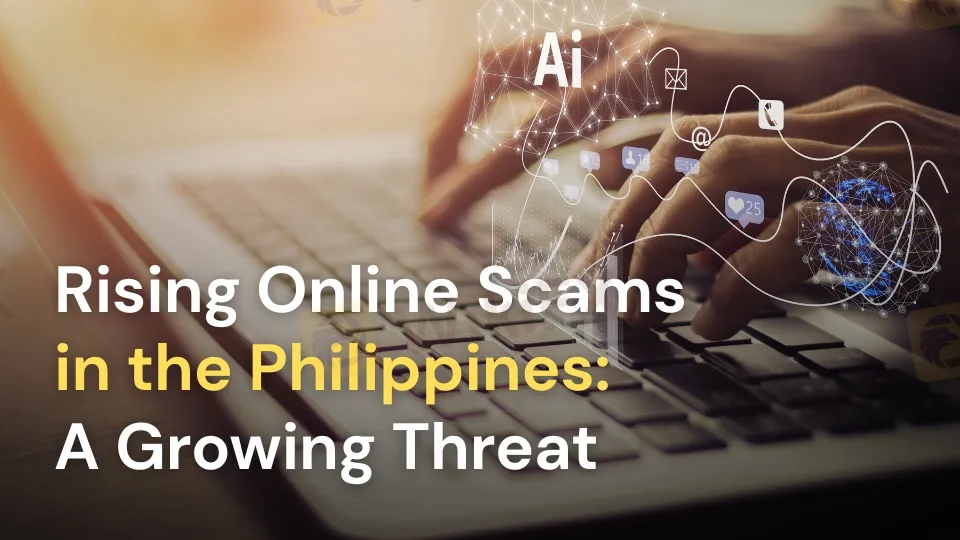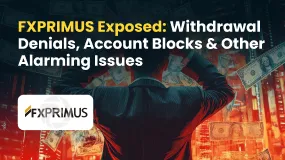简体中文
繁體中文
English
Pусский
日本語
ภาษาไทย
Tiếng Việt
Bahasa Indonesia
Español
हिन्दी
Filippiiniläinen
Français
Deutsch
Português
Türkçe
한국어
العربية
Beware of Rising Online Scams in the Philippines: A Growing Threat
Abstract:Online scams in the Philippines are escalating, with text and call-based fraud targeting millions. Learn about the impact and how to protect yourself from cybercrimes.

The growth of digital tools has made life easier but also brings a hidden danger: online scams. In the Philippines, these scams are becoming a big problem as cybercriminals use clever tricks to steal money and personal information, causing financial loss and emotional pain for many people.
A 2024 Kaspersky report says the Philippines ranks third worldwide for web-based threats, with 42.3 percent of internet users affected by these attacks. This shows how serious the issue is, as scams keep growing with the rise of new technology.
Common Scam Methods
Scammers in the Philippines use many ways to trick people, from simple text messages to complex online fraud. Factors like poverty, widespread smartphone use, and low digital knowledge make the country an easy target for these crimes.
Even with warnings from the government and companies, scams keep increasing. Scammers are quick to learn new technology and find fresh ways to fool people. One popular scam is text-based fraud, like fake job offers, prize notifications, or messages pretending to be from family members asking for cash. These texts are designed to make people act fast without thinking.

Rising Scam Numbers
According to the Philippine News Agency, scam messages and calls are growing every quarter. Over 6 million scam texts and more than 600,000 scam calls have been reported, and the numbers are still rising despite efforts to stop them. Scammers are very adaptable, always changing their methods to avoid getting caught.
In the past, scammers sent out tons of text messages to random phone numbers. Now, they prefer making phone calls with a more personal touch. These calls often pretend to be from banks or government offices, using fear or authority to trick people into sharing private details like bank account information.
AI-Powered Scams
Scammers are now using artificial intelligence (AI) to make their tricks even better. AI tools help them change their voices to sound more real, making it harder for people to spot the fraud. The Cybercrime Investigation and Coordinating Center reports a 74 percent jump in scam calls in early 2025, with cases rising from 108,157 in Q1 2024 to 351,699.
The most common scam calls involve fake loans (55 percent), VIP rewards (24 percent), debt collection tricks (10 percent), transaction checks (5 percent), job offers (3 percent), and delivery scams (3 percent).
This shift to phone calls shows scammers are focusing on targeted attacks. They use social engineering, pretend to be someone else, and gather personal details from social media. Tools like ChatGPT help them create convincing stories, making their scams more dangerous.
The Need for Action
The fast rise of cybercrimes in the Philippines shows why people need to be more aware and take steps to stay safe. While the government and businesses are working to fight scams, the ever-changing tricks mean people are still at risk. Filipinos must learn how to protect themselves from becoming the next victim of these smart online frauds.

Disclaimer:
The views in this article only represent the author's personal views, and do not constitute investment advice on this platform. This platform does not guarantee the accuracy, completeness and timeliness of the information in the article, and will not be liable for any loss caused by the use of or reliance on the information in the article.
Read more

Investing in Coinexx? Think Again Before Your Account Balance Hits ZERO
Coinexx has emerged as a nightmare for traders who once saw potential and profit in its platform. The problems lie in its lack of transparency, which has left many investors with a ZERO balance. Scamming investors by employing fraudulent tactics and introducing bogus trading rules is increasingly becoming its status symbol. The endless negative reviews of this scam broker are trending on various platforms. To expose the troubling investor experiences, we’ve compiled sharp complaints from verified users of Coinexx. Read on!

UnityFXLive: How This Broker Scammed Over $350,000 ? Know the Red Flags
On August 4, 2025 Indian police arrested two men for running a fake forex trading scam under the name UnityFXLive.com. The suspects were caught operating from a rented office in Goregaon, Mumbai. During questioning, they revealed the name of a third person who is believed to be the mastermind behind the scam. He is currently on the run. The scammers promised people high returns on forex investments, but instead of doing real trading, they stole the money using fake online platforms.

FXPRIMUS Exposed: Withdrawal Denials, Account Blocks & Other Alarming Issues
Have your fund withdrawal applications been constantly denied by FXPRIMUS? Does the forex broker inappropriately block your trading account? Are your deposits disappearing without reaching your trading account? There’s something seriously wrong with this forex broker, whose track record keeps getting worse by the day. Many traders have expressed their anguish on several broker review platforms. While reading those reviews, we could not resist exposing this broker. Check out how traders have criticized FXPRIMUS for its illicit acts.

FXPRIMUS Exposed: Withdrawal Denials, Account Blocks & Other Alarming Issues
Have your fund withdrawal applications been constantly denied by FXPRIMUS? Does the forex broker inappropriately block your trading account? Are your deposits disappearing without reaching your trading account? There’s something seriously wrong with this forex broker, whose track record keeps getting worse by the day. Many traders have expressed their anguish on several broker review platforms. While reading those reviews, we could not resist exposing this broker. Check out how traders have criticized FXPRIMUS for its illicit acts.
WikiFX Broker
Latest News
Forex Swaps Explained in 5 Minutes – Everything You Need to Know
Binance Users Convert Crypto and Withdraw Instantly to Mastercard
FXPRIMUS Exposed: Withdrawal Denials, Account Blocks & Other Alarming Issues
Best MetaTrader Forex Brokers in the Philippines 2025
Best MT4 Brokers in the USA in 2025
What WikiFX Found When It Looked Into TradeFW
IG Prime Expands Real-Time Aussie Equities Data Access via CBOE FIX API
One Click on Facebook Cost a 77-Year-Old Over RM100,000
Should You Trust DeltaStock? Key Warning Signs to Consider
Interactive Brokers Launches TipRanks Analytics, Forecast Contracts in Europe
Currency Calculator


